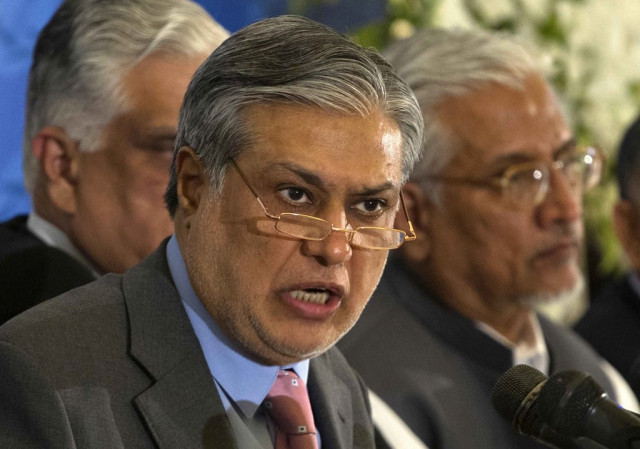Benami bill: will it work?
A NA panel approved an amended version of a bill that prohibits people from keeping assets in the name of others

Ishaq Dar. PHOTO: REUTERS
The Bill seeks to put an end to this practice and is likely to affect more people than one can possibly imagine. But how exactly is the government going to enforce it once it becomes law? This is where Pakistan’s problem lies. In several cases, we have seen that laws exist, but weak enforcement and a general inability to see their implementation to the logical end mean that corruption persists. Loopholes are left to be exploited and authorities are unable to go after the big guns. One of the new amendments that were approved features the inclusion of past Benami transactions, which is significant and is likely to open a Pandora’s box of issues. Many politicians, bureaucrats and officials tend to get away with holding assets beyond their means. Is the government serious about going after all of them? How exactly is it looking to go after past transactions that were recognised as legal at the time they took place. The government will get powers to confiscate properties, jail violators for up to seven years and tax at the rate of 25 per cent of the fair market value. With FBR-appointed officials being tasked to act as administrators of confiscated properties, we know there are several issues with the Bill already, given the FBR’s past incompetence.
Published in The Express Tribune, August 18th, 2016.
Like Opinion & Editorial on Facebook, follow @ETOpEd on Twitter to receive all updates on all our daily pieces.
















COMMENTS
Comments are moderated and generally will be posted if they are on-topic and not abusive.
For more information, please see our Comments FAQ